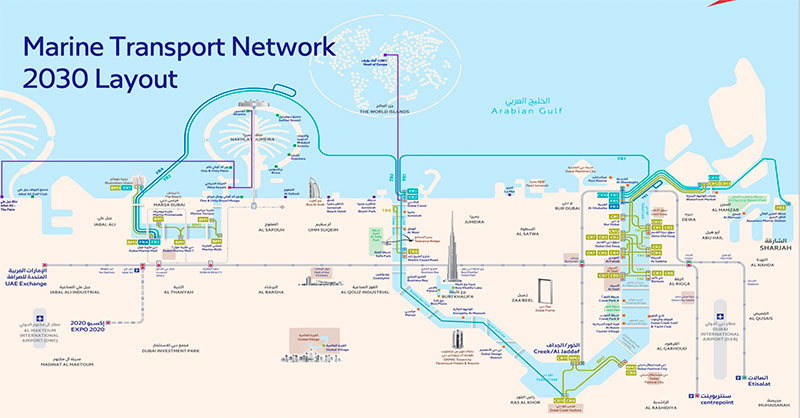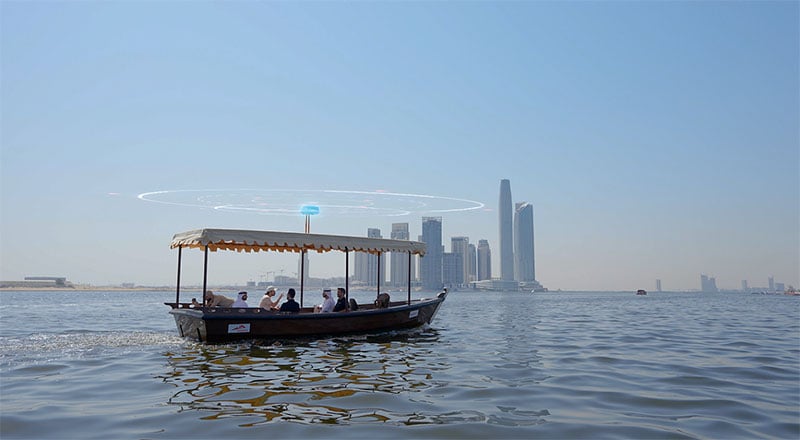Sheikh Hamdan approves master plans for Dubai marine transport
Dubai aims to double transportation users by 2030…
In the near future, Dubai is going to brag a number of cool transportation options from Etihad Rail to the hyperloop, driverless taxis and more. And now, advancements to Dubai’s marine transport have also been announced.
HH Sheikh Hamdan bin Mohammed bin Rashid Al Maktoum, Crown Prince of Dubai and Chairman of The Executive Council of Dubai has approved the Dubai Marine Transport Master Plan 2030 which will see a number of advancements taking place.
The main plan aims to increase the number of marine transport users by 51 per cent, from 14.7 million to 22.2 million annually by 2030.
Here’s how Dubai will go about achieving the target.

Above: Supplied by RTA
The marine transport network is set to expand by 188 per cent from 55km to 158km.
More marine transport stations will be constructed increasing the number from 48 stations to 79 stations. The stations will be found along the Dubai Creek, Dubai Water Canal, the coastline of the Arabian Gulf and more. The plan seeks to increase passenger transport lines from seven to 35, marking a 400 per cent increase. The number of marine vessels is set to increase from 196 to 258.
The world’s first 3D printed electric abra

Aligned with Dubai 3D Printing Strategy, Sheikh Hamdan was briefed on the world’s first 3D printed electric abra. The abras will be designed in such a way that it doesn’t loose out on the heritage charm. Plans revealed that the abras will be able to carry 20 passengers and will slash manufacturing time by 90 per cent.
His Excellency Mattar Al Tayer, Director General and Chairman of the Board of Executive Directors of the Roads and Transport Authority (RTA) stated, “The abra boasts a host of advanced features highlighted by zero carbon emissions, operating and maintenance cost savings of 30 per cent and the elimination of noise compared to diesel-powered abras.”
Dubai began testing the waters with the world’s first electric abra earlier this year in May. The next testing phase is expected to be successfully completed by 2024, with the final testing phase to follow soon after.
Images: Dubai Media Office and RTA
